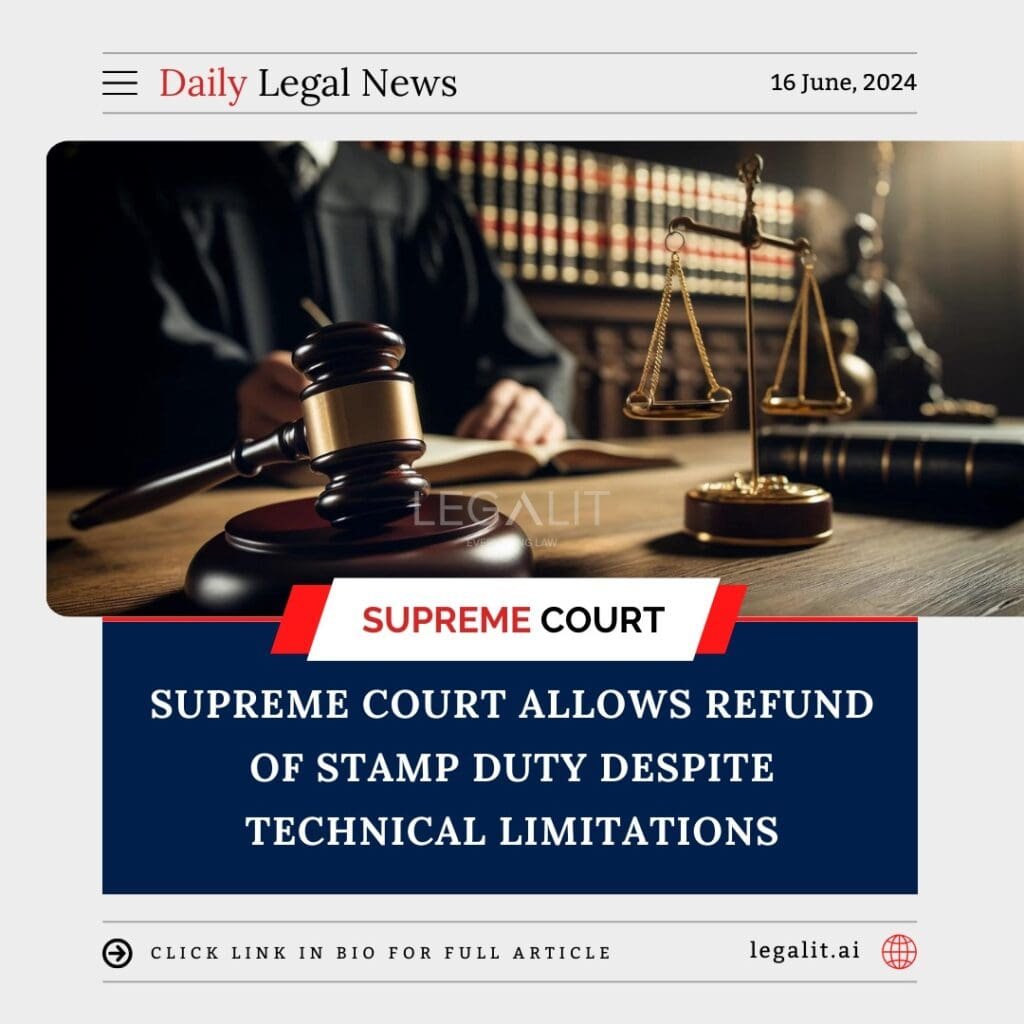
In a significant ruling, the Supreme Court of India has emphasized that the state should not rely on technicalities to deny justice to citizens. This judgment came in the case concerning the refund of stamp duty under the Maharashtra Stamp Act, 1958.
Case Background
The appellant, a bona fide purchaser, had paid a substantial stamp duty amount of ₹25,34,350 for the registration of a conveyance deed. However, the registration could not be completed as the vendor had fraudulently sold the property to another party years prior. The appellant applied for a refund of the stamp duty on October 22, 2014, after discovering the fraud but before the official cancellation deed was executed on November 13, 2014【16†source】【17†source】.
Legal Arguments
The main legal contention revolved around the interpretation of Sections 47 and 48 of the Maharashtra Stamp Act, which prescribe a six-month period for applying for a refund from the date of the instrument. The appellant’s application fell within this period; however, the refund was denied because the cancellation deed had not yet been executed when the application was made. The respondents argued that this technicality rendered the application invalid.
Supreme Court’s Analysis and Ruling
The Supreme Court ruled that the appellant was entitled to the refund, emphasizing that the period of limitation should not be used as a technical ground to deny a just claim. The court noted that the appellant had acted promptly upon discovering the fraud and had pursued legal remedies diligently【17†source】【18†source】.
The bench, comprising Justice B.R. Gavai and Justice Prashant Kumar Mishra, highlighted that when the state interacts with its citizens, it should not strictly adhere to technicalities, especially in cases where the citizen is pursuing a legitimate claim. The court reiterated that the expiry of a limitation period may bar the remedy but not the right itself【16†source】.
Implications of the Ruling
This ruling sets a precedent emphasizing equity and justice over procedural technicalities. It serves as a reminder to authorities to adopt a more citizen-friendly approach, particularly in cases involving fraud and genuine grievances. The Supreme Court’s decision underscores the importance of a fair and just legal process, encouraging a more compassionate and equitable legal framework.
The case illustrates the Supreme Court’s commitment to ensuring justice prevails over rigid adherence to procedural constraints, fostering greater trust in the legal system【17†source】【18†source】.